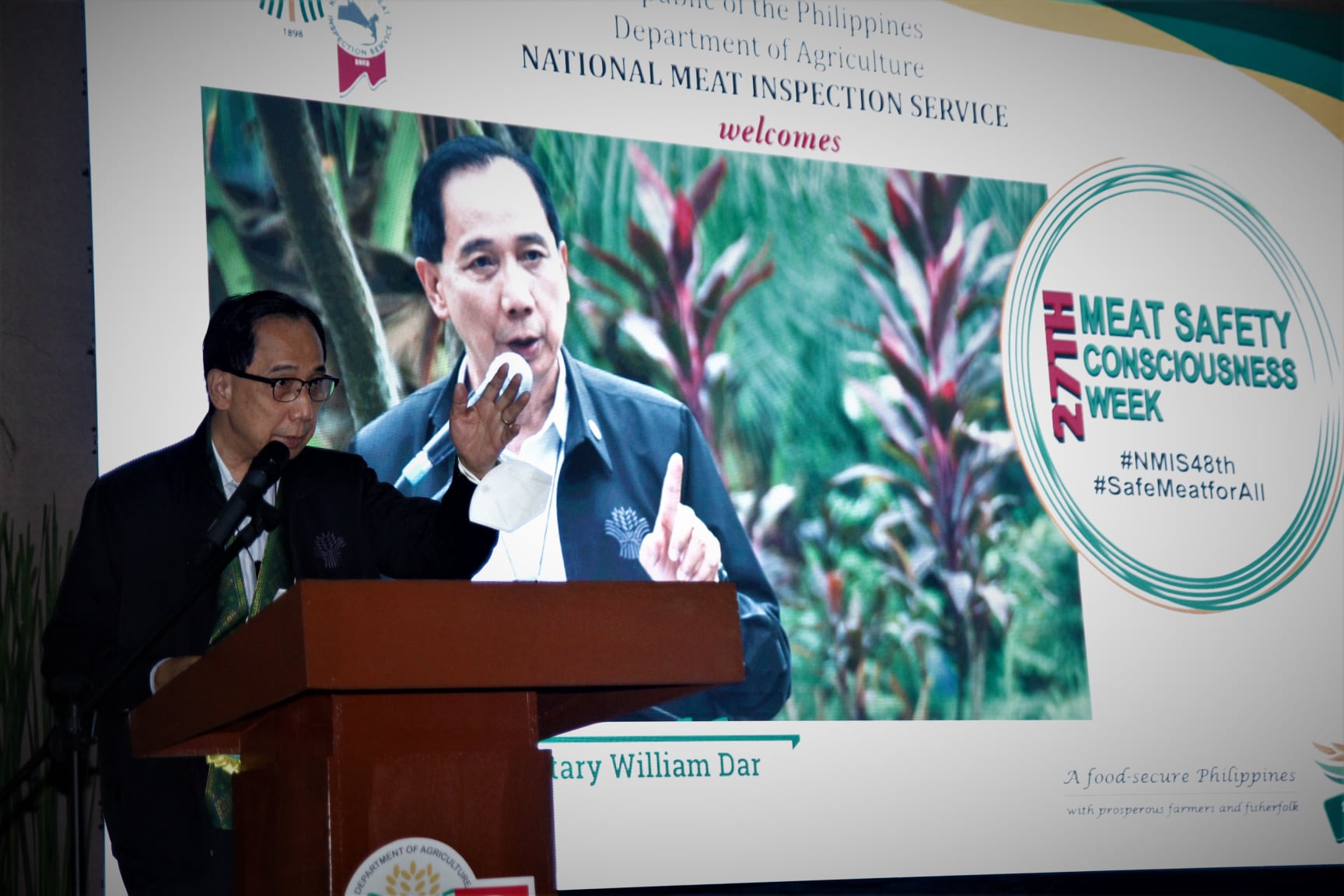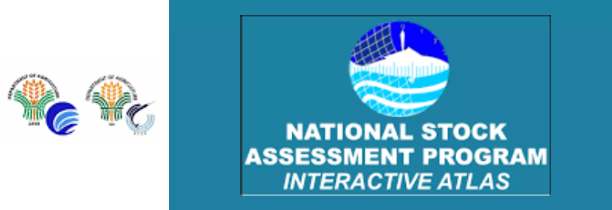
Agriculture Secretary William Dar challenged the National Meat Inspection Service (NMIS) of the Department of Agriculture (DA) to advance current practices and level up its food and meat safety protocols.
“Food safety, particularly meat safety, is a shared responsibility. We each have to do our part to keep and maintain safety in our own locality, and in the entire country, to ensure the health and wellness of all consumers,” said Secretary Dar, underscoring the importance of safe and clean meat industry, during the 48th anniversary of the DA-NMIS on October 20, 2020, in Quezon City.
“As part of the government and the DA family, the officers and personnel of the NMIS serve as gatekeepers of safe meat in our markets, and must continue to fulfill their duties and functions as public servants,” Secretary Dar said.
“Let us not miss the mark. We must not be distracted by the difficulties. No matter what difficulty we are in, whether we are in a pandemic or not, we proceed head-on. After all, we have sworn to protect the public against unsafe meat that can bring direct and indirect hazards and risks to our health,” the DA chief said.
He emphasized that NMIS should ensure that necessary standards and regulations are observed, urging employees to always practice good governance and sustain anti-corruption efforts.
Guided by the theme “Sa Anumang Panahon, Malinis na Karne ang Layon,” the 27th Meat Safety Consciousness Week — which also coincides with the 48th founding anniversary of NMIS — highlights the role of the agency in ensuring that the Filipino consumers enjoy quality, affordable and wholesome meat amidst increased threats to food safety and food security.
The Meat Safety Consciousness Week, held every third week of October, is mandated under Proclamation 276 and signed by then-President Fidel V. Ramos.
Secretary Dar said the agency should work closely with the Bureau of Animal Industry (BAI) to address transboundary animal diseases such as African Swine Fever (ASF) and Avian Flu.
He also reiterated the importance of building strong partnerships with stakeholders as well as local government units (LGUs) that are at the forefront in ensuring meat safety particularly when border controls were set up to control ASF and lockdowns imposed to curb the spread of the Covid-19 virus.
Further, he directed the inspection service to help LGUs enhance their capabilities in implementing the Meat Inspection Code of the Philippines in their respective localities.
He also urged NMIS staff members to properly carry out the guidelines specified in the Food Safety Act of 2013, particularly now that the country is in the midst of a health crisis.
“You must strictly monitor concerns on the potential transmission of Covid-19 virus to meat products, compliance of meat manufacturers on imposed health safety protocols,” he added.
For his part, NMIS executive director Dr. Reildrin G. Morales reported the accomplishments of the agency, including efficient data collection on inspections, development of the National Accreditation and Registration Information System (NARIS), implementation of the electronic payment systems and Automated In-Plant Line Inspection Reporting System (AIPLIRS) in selected regional offices, extension of meat plants licenses, mandatory application of the Hazard Analysis Critical Control Point (HACCP) program, and non-stop monitoring and surveillance to ensure that consumers have ready and immediate access to safe and quality meat.
Dr. Morales added that the NMIS plans to intensify staff technical trainings and will soon offer scholarships for graduate studies.
He said a study is also being conducted to review the current state of the country’s meat industry, the total number of processing facilities in the country, and the current gaps the agency is facing, among other major concerns. ### (Kristel Merle, DA-AFID)













